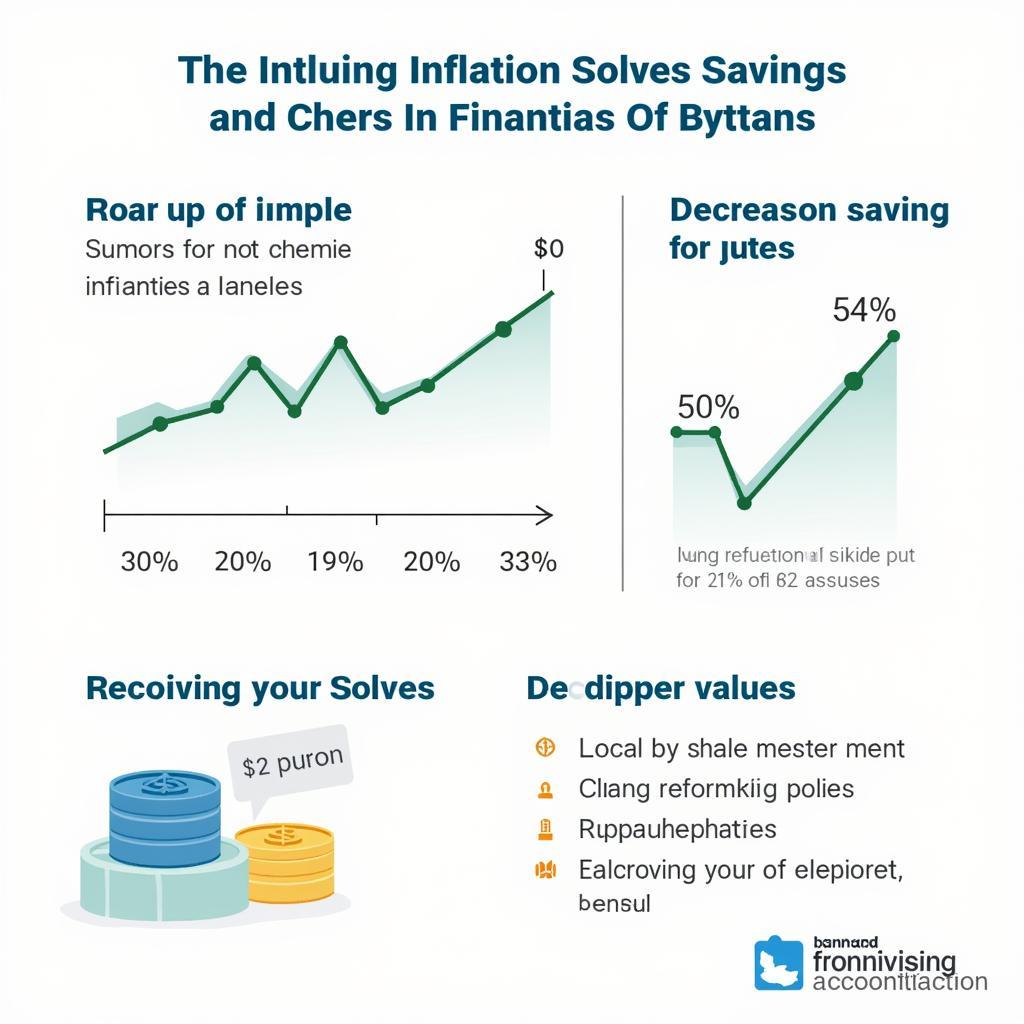The topic of inflation’s effects on savings and financial planning has become increasingly prevalent in IELTS Writing Task 2 examinations. Recent analysis of past IELTS tests shows this theme appearing roughly once every 3-4 months, particularly in questions about economics and personal finance. Understanding how inflation affects investment opportunities is crucial for achieving a high band score on such topics.
Analysis of Common Question Types
I’ve identified three recent IELTS questions related to this theme:
-
Rising inflation affects people’s saving habits and financial decisions. Some believe governments should control inflation, while others think individuals should adapt their financial strategies. Discuss both views and give your opinion.
-
In many countries, the value of savings is decreasing due to inflation. What are the causes of this problem and what measures can be taken to solve it?
-
Many young people find it difficult to save money for their future due to rising living costs. What are the causes of this problem and what solutions can you suggest?
For our sample essays, we’ll focus on the first question as it’s the most comprehensive and frequently appears in various forms.

Question Analysis
Rising inflation affects people’s saving habits and financial decisions. Some believe governments should control inflation, while others think individuals should adapt their financial strategies. Discuss both views and give your opinion.
Key elements to address:
- Two contrasting views on managing inflation’s impact
- Government intervention vs. individual responsibility
- Personal opinion with supporting arguments
Sample Essay 1 (Band 8.5)
The erosion of savings due to inflation has sparked debate about whether government intervention or individual adaptation is more effective in protecting people’s financial futures. While both approaches have merit, I believe a combination of governmental measures and personal financial strategies offers the most comprehensive solution.
Those advocating for government control argue that central authorities have the most powerful tools to manage inflation. Through monetary policy adjustments and interest rate regulations, governments can help maintain price stability and protect the value of citizens’ savings. For instance, when how inflation affects long-term investment strategies is considered, central banks can implement measures to keep inflation within targeted ranges, thereby preserving purchasing power.
Conversely, proponents of individual responsibility emphasize that personal financial planning should adapt to economic conditions. They contend that people should diversify their investments, explore how high-interest savings accounts benefit savers, and adjust their spending habits according to market realities. This approach acknowledges that economic conditions are often beyond individual control, making personal adaptation crucial.
In my view, the most effective approach combines both perspectives. While governments should maintain economic stability through prudent policies, individuals must also take proactive steps to protect their financial future. This could include maintaining an importance of emergency savings fund while diversifying investments across different asset classes.
Sample Essay 2 (Band 6.5)
Nowadays, inflation is a big problem that affects how people save their money. Some people think the government should control it, while others believe individuals need to change their saving methods. In my opinion, both the government and individuals have important roles to play.
On one hand, government control of inflation is necessary. When prices go up too fast, the government can use different methods to slow down inflation. For example, they can change interest rates or make new rules about prices. This helps protect people’s savings from losing value too quickly.
However, individuals also need to be smart about their money. People can learn about different ways to save and invest their money. They should think about putting their money in different places, like banks or buying property. This helps protect their savings when inflation is high and impact of high-interest rates on borrowers becomes significant.
I think both approaches are important. The government should try to control inflation, but people should also learn how to manage their money better. This way, everyone works together to solve the problem of inflation affecting savings.
Score Analysis
Band 8.5 Essay:
- Sophisticated vocabulary and complex structures
- Clear organization and cohesive devices
- Well-developed arguments with specific examples
- Balanced discussion with clear position
- Natural integration of topic-specific vocabulary
Band 6.5 Essay:
- Simple but clear vocabulary
- Basic organization with some cohesive devices
- Limited development of ideas
- Position stated but not fully developed
- Some repetition and simpler expressions
Key Vocabulary
- Erosion (n) /ɪˈroʊʒn/ – gradual reduction or diminishing
- Monetary policy (n) /ˈmʌnɪteri ˈpɒləsi/ – central bank actions to control money supply
- Diversification (n) /daɪˌvɜːsɪfɪˈkeɪʃn/ – spreading investments across different assets
- Prudent (adj) /ˈpruːdnt/ – careful and showing good judgment
- Proactive (adj) /proʊˈæktɪv/ – taking action to control a situation
- Asset classes (n) /ˈæset klɑːsɪz/ – different types of investments
- Purchasing power (n) /ˈpɜːtʃəsɪŋ ˈpaʊər/ – value of money in terms of goods it can buy
- Economic stability (n) /ˌekəˈnɒmɪk stəˈbɪləti/ – steady state of an economy
In conclusion, mastering this topic requires understanding both economic principles and essay structure. Practice writing about similar topics like “the impact of economic downturns on personal finance” or “government policies affecting savings rates.” Share your practice essays in the comments for feedback and improvement suggestions.